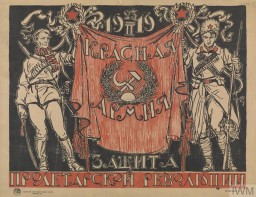You searched for: 凯旋门娱乐chang【Aurl:www.8233066.com】送888元.ybmt
<< Previous | Displaying results 31-40 of 228 for "凯旋门娱乐chang【Aurl:www.8233066.com】送888元.ybmt" | Next >>
-
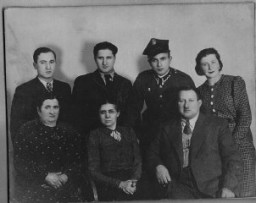
-
Charlene Schiff describes the Soviet occupation of Horochow after the outbreak of World War II
Oral HistoryBoth of Charlene's parents were local Jewish community leaders, and the family was active in community life. Charlene's father was a professor of philosophy at the State University of Lvov. World War II began with the German invasion of Poland on September 1, 1939. Charlene's town was in the part of eastern Poland occupied by the Soviet Union under the German-Soviet Pact of August 1939. Under the Soviet occupation, the family remained in its home and Charlene's father continued to teach. The Germans…
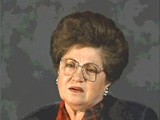
-
Shulamit Perlmutter (Charlene Schiff)
ID CardShulamit, known as Musia, was the youngest of two daughters born to a Jewish family in the town of Horochow, 50 miles northeast of Lvov. Her father was a philosophy professor who taught at the university in Lvov, and both of her parents were civic leaders in Horochow. Shulamit began her education with private tutors at the age of 4. 1933-39: In September 1939 Germany invaded Poland, and three weeks later the Soviet Union occupied eastern Poland, where Shulamit's town was located. Hordes of refugees…
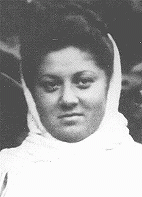
-
Martin Niemöller: "First they came for..."
ArticleLearn about the origins and legacy of Pastor Martin Niemöller's famous postwar words, “First they came for the socialists, and I did not speak out…”
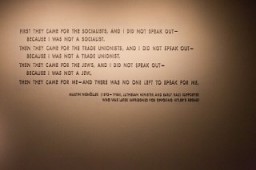
-
Susan Bluman describes the German invasion of Poland
Oral HistorySusan was 19 years old when Germany invaded Poland in September 1939. Her boyfriend, Nathan, was in Lvov when the Soviet Union occupied eastern Poland. Nathan sent a guide to Warsaw to bring Susan to the Soviet zone of occupied Poland. Her parents reluctantly agreed after Susan promised to return to Warsaw within two weeks. Upon her arrival in Lvov, Susan married Nathan. The couple then fled across the Lithuanian border to Vilna, where they stayed for a year. They received a visa for transit through Japan…
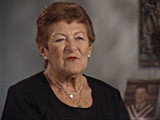
-
Ludmilla Page describes sabotage during production of munitions in Oskar Schindler's factory in Brünnlitz
Oral HistoryLudmilla was born to an assimilated Jewish family in Kishinev, Romania. She and her mother, a physician, were living in Poland when the Germans invaded on September 1, 1939. They were taken to Krakow. Ludmilla was forced to live in the Krakow ghetto; her mother was sent to the Warsaw ghetto. Ludmilla worked in a factory at the Plaszow labor camp for a businessman who was a friend of the German industrialist Oskar Schindler. In October 1944, Schindler attempted to save some Jewish workers by relocating them…
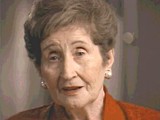
-
Miles Lerman describes the impact of his wartime experiences
Oral HistoryMiles Lerman was a Holocaust survivor, partisan fighter in the forests of Poland, international leader in the cause of Holocaust remembrance, and a "founding father" of the United States Holocaust Memorial Museum.
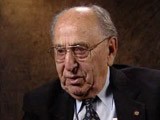
-
Stephen S. Wise
ArticleStephen Wise (1874–1949) was a prominent Jewish leader in the United States between 1933-1945. Learn more about his work during the Holocaust.
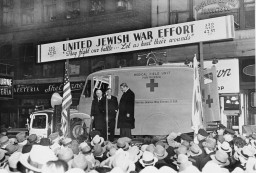
-
The Nazification of the German Police, 1933–1939
ArticleThe Nazis utilized the German police for mass repression and genocide. Learn more about the Nazification of the police force from 1933-1939.
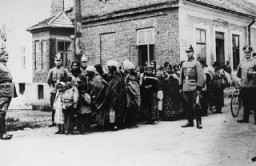
-
Communism
ArticleCommunist ideas spread rapidly in Europe during the 19th and 20th centuries, offering an alternative to both capitalism and far-right fascism and setting the stage for a political conflict with global repercussions.
